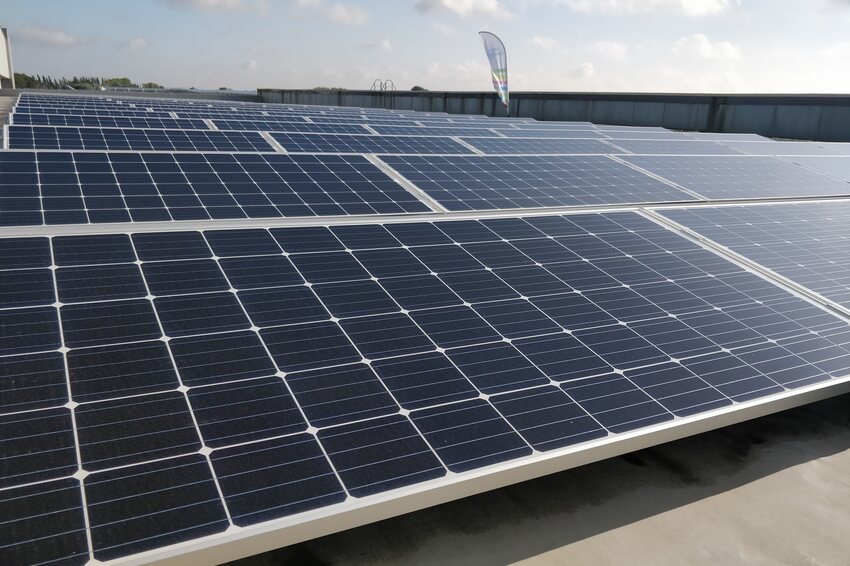The European Commission wants solar panels to be installed on all new public buildings and possibly also commercial buildings, VRT NWS reports.
The proposal is part of the RePower EU plan that will be presented tomorrow, which aims to make Europe independent of Russian energy and accelerate the transition to sustainable energy sources.
Europe currently still relies on Russia for 40% of its gas, 27% of its oil, and 46% of all coal. The new proposal will mainly concern Russian gas, while Russian coal will be phased out in August and an embargo on oil will go into effect at the end of this year.
Ambitious energy
Europe wants to be fully independent of Russian energy by the end of 2027, in just over five years.
Regarding renewable energy, the RePower EU goes one step further than the previous Fit for 55 plan, stepping up from aiming for 32% renewable energy to 45% by 2030.
Related News
- Belgian electricity production reaches record highs in 2021
- Green power: Record demand for solar panels in Flanders
- Oil and gas giants’ plans threaten to accelerate climate change
Tomorrow, Vice President of the European Commission Frans Timmermans will explain what is needed to achieve the objective, from the necessary budgets to amendments to the legislation.
Solar power
The European Commission is focusing on the potential of solar power, as the panels will become mandatory for new, large, public buildings, such as government institutes and possibly office buildings.
In Flanders, Energy Minister Zuhal Demir obliged 2,500 companies that consume a lot of energy to install solar panels by 2025 at the beginning of this month. That also applies to 700 government buildings.
There might also be a European obligation to have solar panels on all buildings, including homes, according to various international media. In this case, Flanders sets a good example, as 92% of newly built homes are already equipped with solar panels.
Price tag
The renewable energy plans come with a hefty price tag of €210 billion, though energy independency from Russia will also save €99 billion that Europe paid the country last year.
Furthermore, Europe hopes to earn €20 billion euros by selling more emission rights. Companies must buy emission certificates per tonne of CO2 they emit and additional allowances can be sold.
Another source of funding are the European recovery budgets that are paid out to the Member States to boost the economy after the pandemic. But Member States and regions might also have to contribute, just like companies and private individuals installing solar panels.
Europe also has its eyes on new forms of energy, such as hydrogen and biogas, while it will also continue to purchase gas, though from Qatar and the US rather than Russia.

